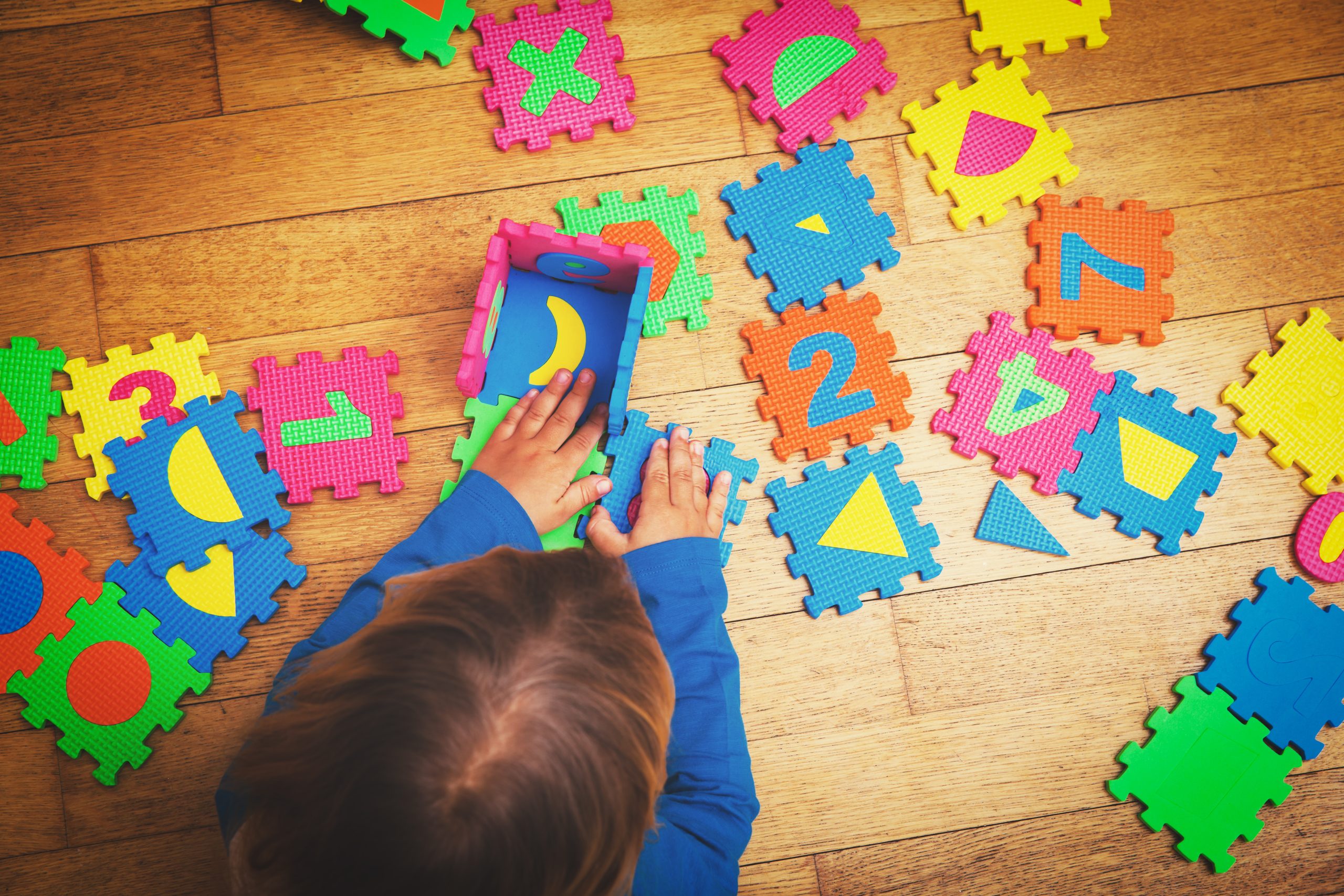
123rf
Parenting is an exhilarating journey filled with love, laughter, and the inevitable challenges of juggling a busy life. In the modern world, where time is a precious commodity, moms and dads strive to find that perfect balance between fulfilling professional responsibilities and being present for their children’s milestones.
The quest for effective parenting solutions has never been more relevant, as families navigate through a fast-paced lifestyle that often leaves little room for error or inefficiency. Enter the realm of game-changing parenting hacks—ingenious, practical tips designed to streamline your daily routines, enhance your child’s development, and maximize those precious moments together.
This guide unveils 18 life-altering strategies for busy moms and dads, offering a roadmap to a harmonious family life where joy and productivity coexist. Prepare to transform your parenting approach, turning every challenge into an opportunity to bond, learn, and grow alongside your children.
1. Schedule Power Hours

123rf
Dedicate specific hours to uninterrupted, quality time with your children. This isn’t just about supervision; it’s about engaging in activities that both you and your child enjoy. Create a weekly schedule that includes these power hours to ensure they happen. Make this time technology-free to focus entirely on the moment. You’ll be surprised how much you can bond and accomplish in these concentrated sessions. Power hours help in creating lasting memories and teaching valuable life lessons.
2. Meal Prep Mastery

123rf
Save time and reduce stress by planning and preparing meals in advance. Batch cooking on weekends can be a lifesaver for busy weekdays. Involve your children in meal preparation to teach them cooking skills and nutrition. Use color-coded containers to make it fun and organized. Freeze portions for easy reheating, ensuring healthy meals are always at hand. This not only streamlines mealtime but also helps in maintaining a balanced diet.
3. The Magic of Routine

123rf
Establishing a consistent daily routine helps children feel secure and manage their expectations. From morning rituals to bedtime routines, consistency is key. Routines can include reading time, playtime, or simple chores. Use visual charts to help children understand and follow the routine. This fosters independence and time management skills from an early age. Plus, it makes daily transitions smoother for everyone involved.
4. Tech to the Rescue

123rf
Leverage technology to make parenting easier. Use apps for educational activities, time management, and even remote monitoring. Choose quality, age-appropriate apps that promote learning and creativity. Set clear boundaries around screen time to ensure its beneficial, not detrimental. Technology can be a valuable ally in managing the chaos of daily life. Remember, it’s about using tech as a tool, not a crutch.
5. Simplify the Morning Rush

123rf
Mornings can be hectic, but with a few strategic hacks, they can run smoothly. Prepare the night before—lay out clothes, pack lunches, and set out breakfast items. Establish a morning routine that everyone follows, making it easier to get out the door on time. Use checklists for older children to follow and take responsibility. Simplify breakfast with quick, nutritious options. These steps can transform chaotic mornings into calm departures.
6. Organize and Delegate

123rf
Clutter can lead to chaos. Organize your home to make it more functional and less stressful. Label shelves and bins for easy access and storage. Delegate age-appropriate chores to children, teaching responsibility and teamwork. Use a family calendar to track activities, appointments, and tasks. By sharing responsibilities, you foster a sense of belonging and teamwork within the family.
7. Bedtime Blues Be Gone

123rf
Create a calming bedtime routine to help children wind down. Use soothing music, gentle lighting, and quiet activities like reading to signal it’s time to sleep. Consistency in bedtime routines aids in better sleep patterns. Discuss the day’s events and tomorrow’s plans to help children mentally prepare. Use bedtime as a moment to connect, ensuring a peaceful end to the day. This routine helps in fostering a sense of security and calmness in children.
8. Embrace Outdoor Adventures

123rf
Encourage outdoor play to promote physical activity and creativity. Simple activities like walking, cycling, or playing in the park can make a significant difference. Nature exploration can be both educational and relaxing. Plan weekend outdoor adventures to create family memories. Outdoor time is essential for physical health and mental well-being. It’s a perfect way to disconnect from screens and connect with each other.
9. Smart Shopping Strategies

123rf
Minimize shopping trips with effective planning. Use online grocery services or curbside pickups to save time. Involve the kids in making shopping lists to teach planning and decision-making. Bulk buying for staples can save money and reduce shopping frequency. Organize the pantry and fridge for easy access and inventory management. Smart shopping reduces stress and frees up time for family activities.
10. Efficient Homework Help

123rf
Create a dedicated homework space and time to help children focus. Be available for help but encourage independence. Use resources like educational websites or apps to assist in learning. Break tasks into manageable chunks to prevent overwhelm. Praise effort, not just results, to foster a growth mindset. Efficient homework strategies can make learning more enjoyable and less of a chore.
11. Laundry Load Lighteners

123rf
Streamline the laundry process with daily small loads instead of weekly marathons. Involve kids in sorting and folding to teach responsibility. Use color-coded baskets for each family member to simplify sorting. Implement a system for managing clean and dirty clothes. Quick-dry fabrics can save time and energy. These strategies can turn laundry from a daunting task into a manageable routine.
12. Financial Literacy for Kids

123rf
Teach children about money management through allowance and savings goals. Use apps or games to make learning about finances fun. Discuss family budgeting to provide real-world context. Encourage entrepreneurial activities like a lemonade stand. Set up a savings account and involve them in tracking progress. Educating children about finances prepares them for future independence.
13. Quality Time vs. Quantity Time

123rf
Focus on meaningful interactions rather than the duration of time spent together. Small moments like cooking together or Storytime can be significant. Be fully present during these times, free from distractions. Tailor activities to each child’s interests and age. Quality time strengthens bonds and builds self-esteem. It’s the richness of the experience that counts, not the length.
14. Creative Chaos Control

123rf
Establish clear zones in the home for activities like play, work, and relaxation. Use storage solutions that kids can manage themselves. Regular decluttering sessions can be made into a fun family activity. Embrace a bit of mess as a sign of creativity and learning. Rotate toys and books to keep things fresh and engaging. A managed environment reduces stress and encourages order.
15. Positive Reinforcement Routines

123rf
Implement a reward system for positive behavior and accomplishments. Use charts or apps to track progress towards goals. Celebrate successes, no matter how small, to encourage continued effort. Positive reinforcement builds confidence and motivation. Ensure the rewards are meaningful and age-appropriate. This system helps in fostering a positive atmosphere and encouraging good habits.
16. Self-care for Parents

123rf
Remember to take care of yourself to be your best for your children. Simple self-care acts like reading, exercise, or hobbies can rejuvenate you. Schedule regular “me time” to maintain mental and physical health. Prioritizing parental self-care models healthy habits for children. Self-care isn’t selfish; it’s necessary for balanced parenting. Taking care of yourself ensures you have the energy and patience for effective parenting.
17. Community Connection

123rf
Build a support network with other parents and families. Participate in community events or groups to connect with others. Sharing experiences and advice can provide valuable support. Community connections can lead to friendships and resources for both parents and children. It’s a way to feel less isolated and more empowered in parenting. Relying on a community can provide relief and reassurance.
18. Learning Through Play

123rf
Incorporate educational games and activities into daily routines. Play-based learning can be both fun and educational. Use toys and games that promote problem-solving and creativity. Interactive play encourages communication and social skills. Learning through play is effective and enjoyable for children. It turns everyday moments into opportunities for growth and development.
Extraordinary Parenting

123rf
Mastering the art of parenting as busy moms and dads is about integrating these hacks into everyday life, transforming routine challenges into opportunities for growth and bonding. Each of these 18 strategies offers a way to streamline daily tasks, enhance learning, and deepen family connections. By scheduling power hours, embracing outdoor adventures, or fostering financial literacy, parents can equip their children with the skills and experiences needed for a fulfilling life. Efficiently managing household chores, prioritizing self-care, and building community ties are also crucial in maintaining a balanced and joyful family dynamic.

Latrice is a dedicated professional with a rich background in social work, complemented by an Associate Degree in the field. Her journey has been uniquely shaped by the rewarding experience of being a stay-at-home mom to her two children, aged 13 and 5. This role has not only been a testament to her commitment to family but has also provided her with invaluable life lessons and insights. As a mother, Latrice has embraced the opportunity to educate her children on essential life skills, with a special focus on financial literacy.
Leave a Reply